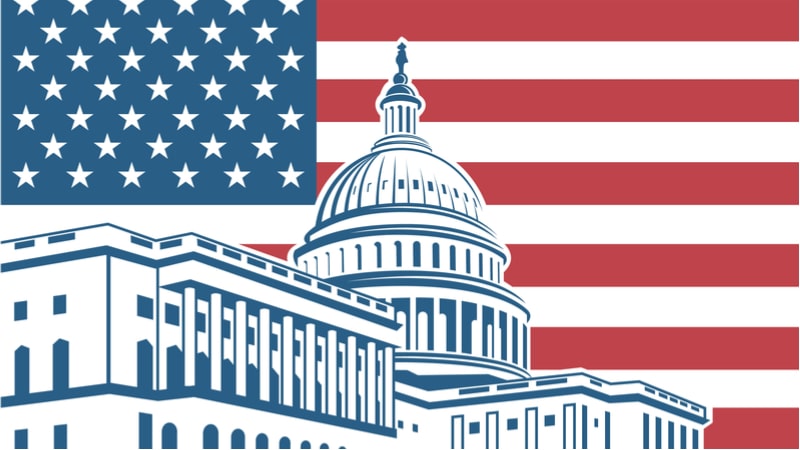
The House Energy and Commerce Committee’s Communications and Technology Subcommittee is getting ready for Tuesday’s hearing on unwanted robocalls. The hearing – which will include expert testimony from academia, consumer interest groups, and technology interest groups – will cover seven legislative measures that lawmakers unveiled today.
Legislation to be discussed at tomorrow’s hearing includes:
- H.R. 946 – Stopping Bad Robocalls Act: Legislation introduced by E&C Chairman Frank Pallone, D-N.J., that will direct the Federal Communications Commission (FCC) to enact stronger consumer protections for unauthorized calls. Additionally, the bill will give the FCC stronger enforcement tools to stop robocallers and will enable consumers to stop previously authorized calls, as well as require calls to have accurate caller identification information.
- H.R. 1421 – Help Americans Never Get Unwanted Phone Calls (HANGUP) Act of 2019: The bill, introduced by Rep. Anna Eshoo, D-Calif., would “rescind Section 301 of the Bipartisan Budget Act of 2015 exempting calls ‘made solely to collect a debt owed to or guaranteed by the United States’ from the TCPA [Telephone Consumer Protection Act] so that these debt collectors did not have to get consent from consumers before calling.”
- H.R. 2355 – Regulatory Oversight Barring Obnoxious (ROBO) Calls and Texts Act: Another piece of legislation from Eshoo. This bill will require the FCC to create a Robocalls Division. The new division will ensure consumer protection and compliance with Federal laws; serve has a line of communication between the government and the telecom industry; manage robocall consumer complaints; and serve as a line of communication between the FCC and other agencies. The bill will also require the FCC to “implement regulations to compel carriers to adopt technological standards to prevent robocalls.”
- H.R. 2298 – Repeated Objectionable Bothering of Consumers on Phones (ROBOCOP) Act: Rep. Jackie Speier, D-Calif., introduced the legislation, which “requires carriers, for no additional charge, to enable technology that: (1) verifies the accuracy of caller ID information; (2) generally blocks calls or text messages that do not have verified caller ID information; and (3) blocks calls or text messages that originate, or probably originate, from an autodialer, unless the consumer has consented or the call is coming from a public safety entity.” The bill also establishes a private right of action to “enjoin or recover damages for violations of the new call blocking requirements in the bill.” It also allows states to bring civil actions for a “failure to provide the call blocking required by the bill.”
- H.R. 721 – Spam Calls Task Force Act of 2019: This bill, introduced by Rep. Charlie Crist, D-Fla., will require the Attorney General, along with the FCC, to “convene an interagency working group to study the enforcement of the TCPA.”
- Draft of Support Tools to Obliterate Pesky (STOP) Robocalls Act: Rep. Bob Latta, R-Ohio, has released a discussion draft of a new bill. The bill would “(1) allow carriers to provide robocall blocking technology to consumers on an opt-out basis; (2) require the FCC to issue rules for interconnected voice over internet protocol (VoIP) providers or one way interconnected VoIP providers to require greater call record retention obligations, among other things; and (3) require the FCC to issue rules to streamline the ways in which private entities share information relating to robocalling or spoofing with the FCC.”
- H.R. 1575 – Robocall Enforcement Enhancement Act of 2019: Rep. Jeff Van Drew, D-N.J., sponsored legislation that will increase the statute of limitations for illegal spoofing; increase the time the FCC has to impose a forfeiture for illegal robocalls; and allows the FCC to impose a forfeiture against illegal robocallers without first issuing a citation.
Interestingly, H.R. 1602, The Telephone Robocall Abuse Criminal Enforcement and Deterrence Act (TRACED), is not on the docket. The legislation, intended to “deter criminal robocall violations and improve enforcement of section 227(b) of the Communications Act of 1934,” is the House version of a Senate bill S. 151. The legislation has been gaining momentum and will be coming up on the Senate floor in the near future. The Senate version currently has 52 bipartisan cosponsors and cleared committee unanimously earlier this month. Despite being introduced in the House on April 7, the legislation isn’t listed as a topic of conversation for tomorrow’s hearing.
Check back tomorrow for more coverage of the hearing.
